Світовий бестселер: 1795
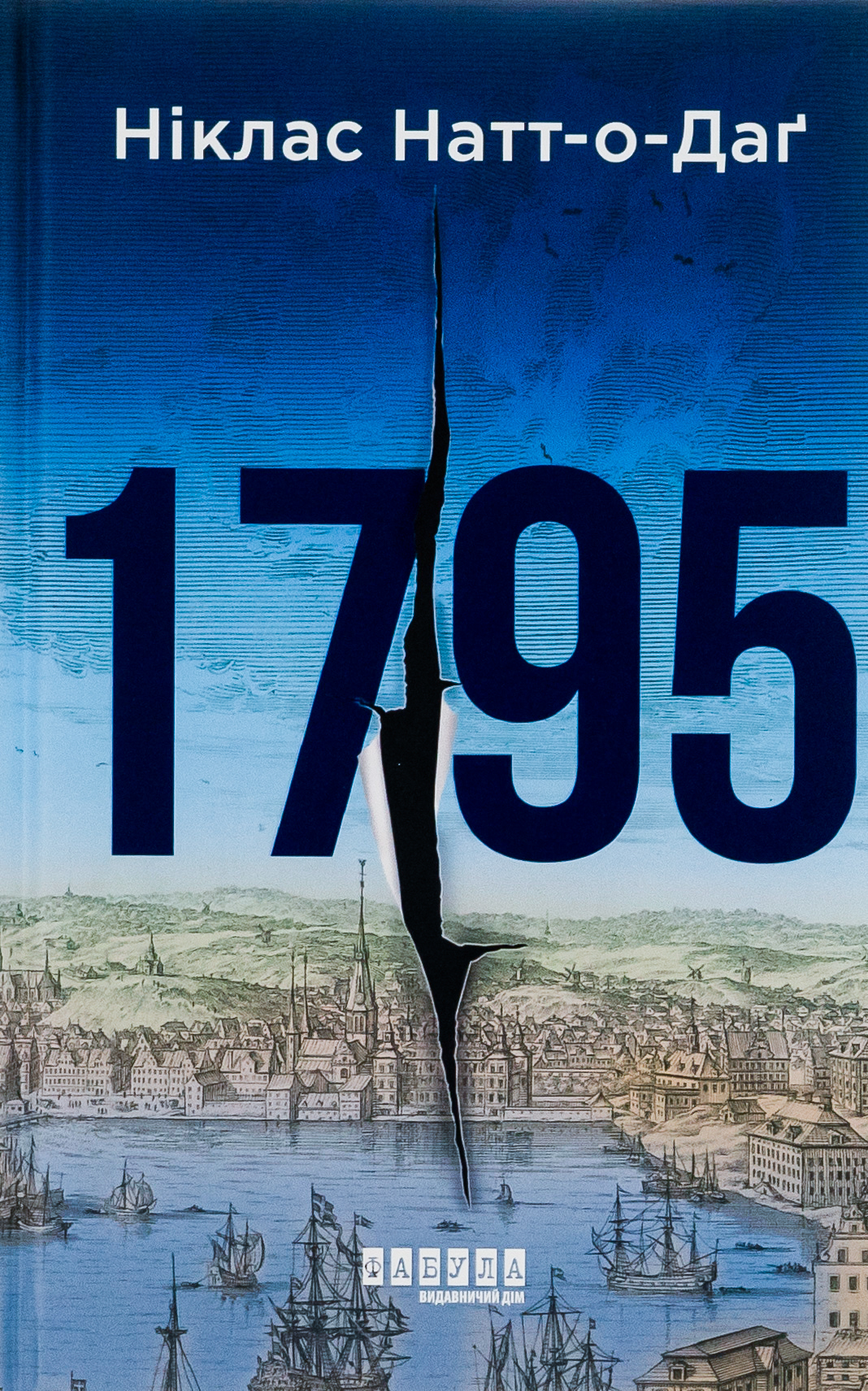
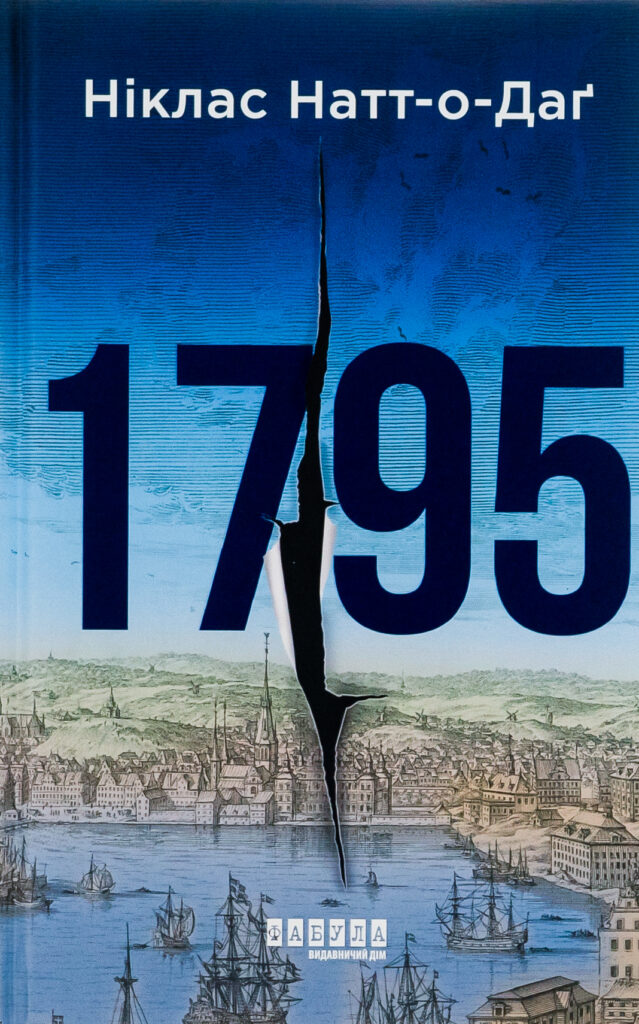
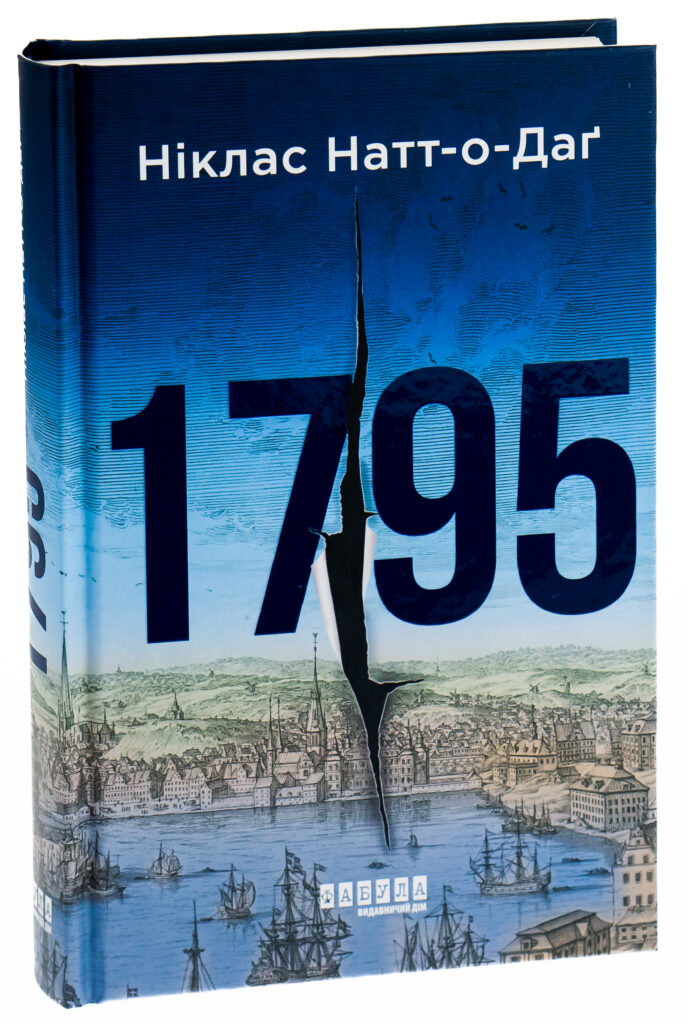
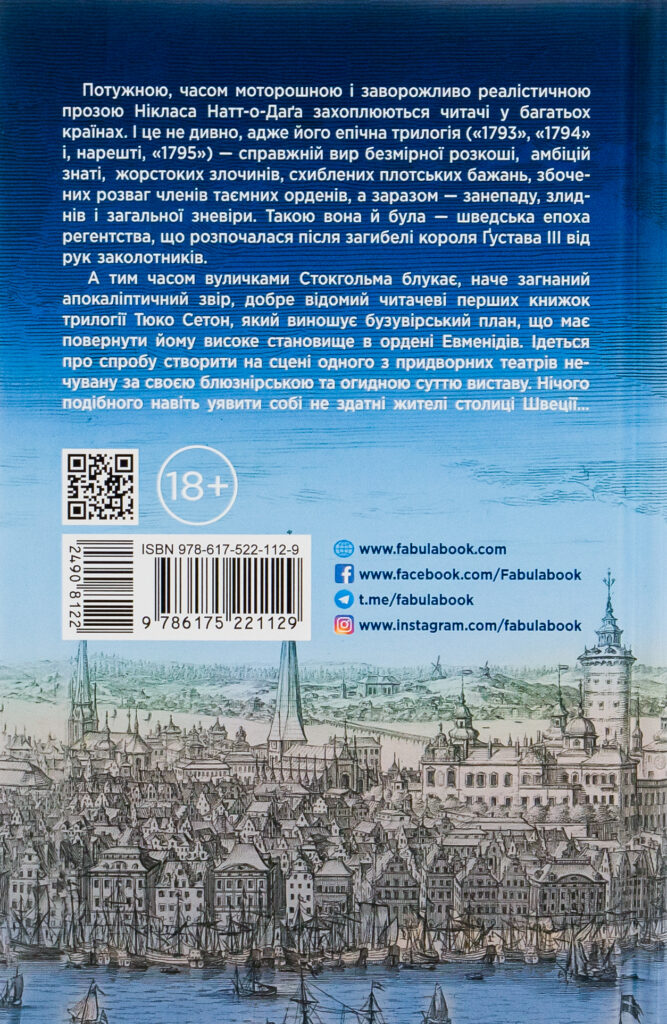
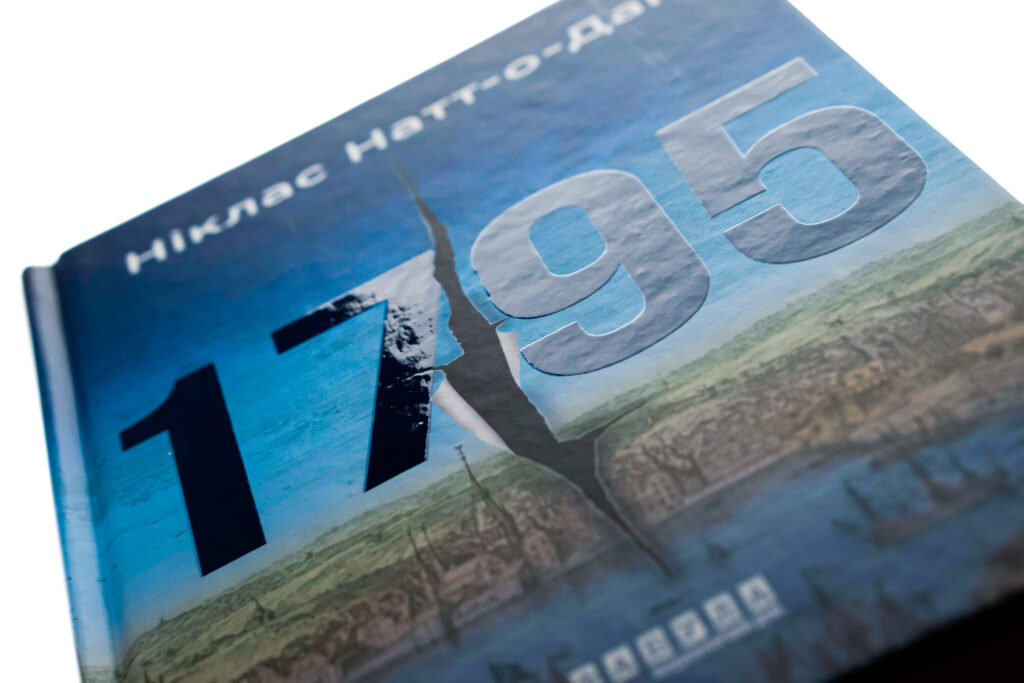
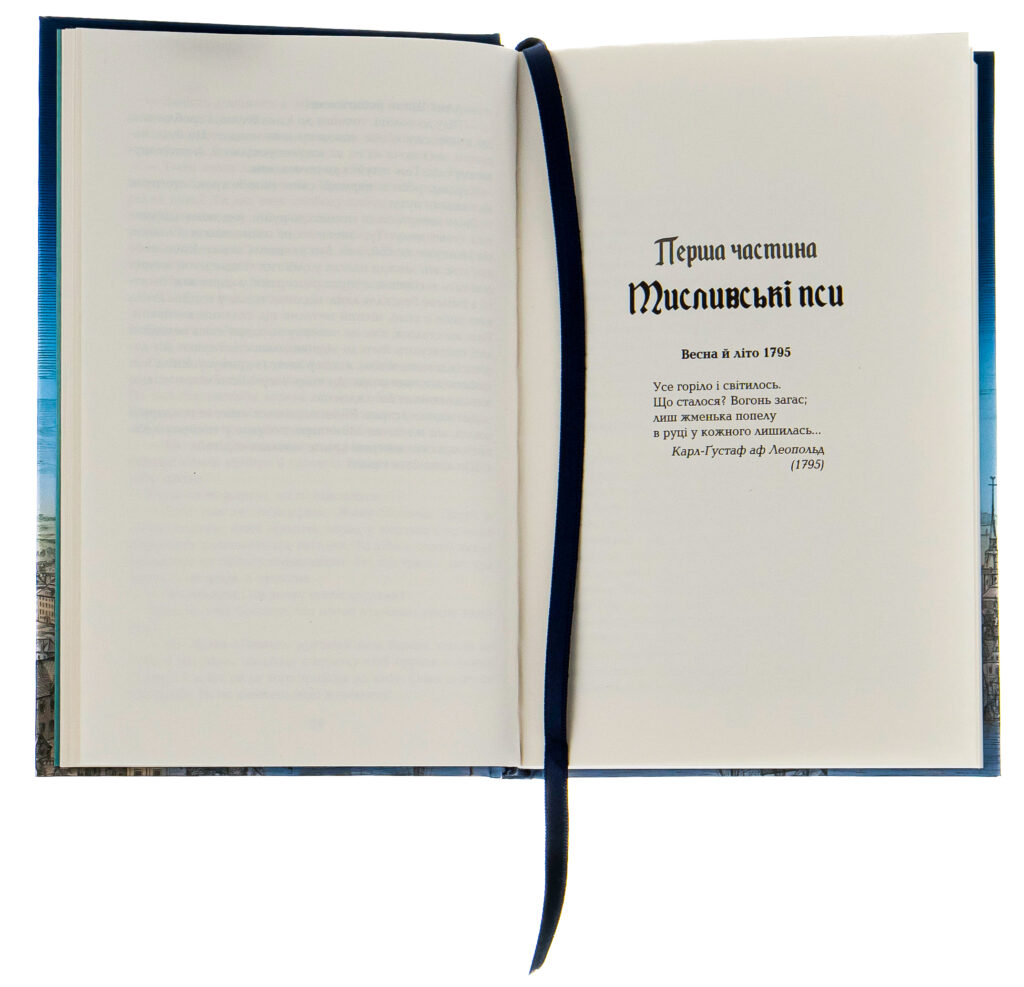
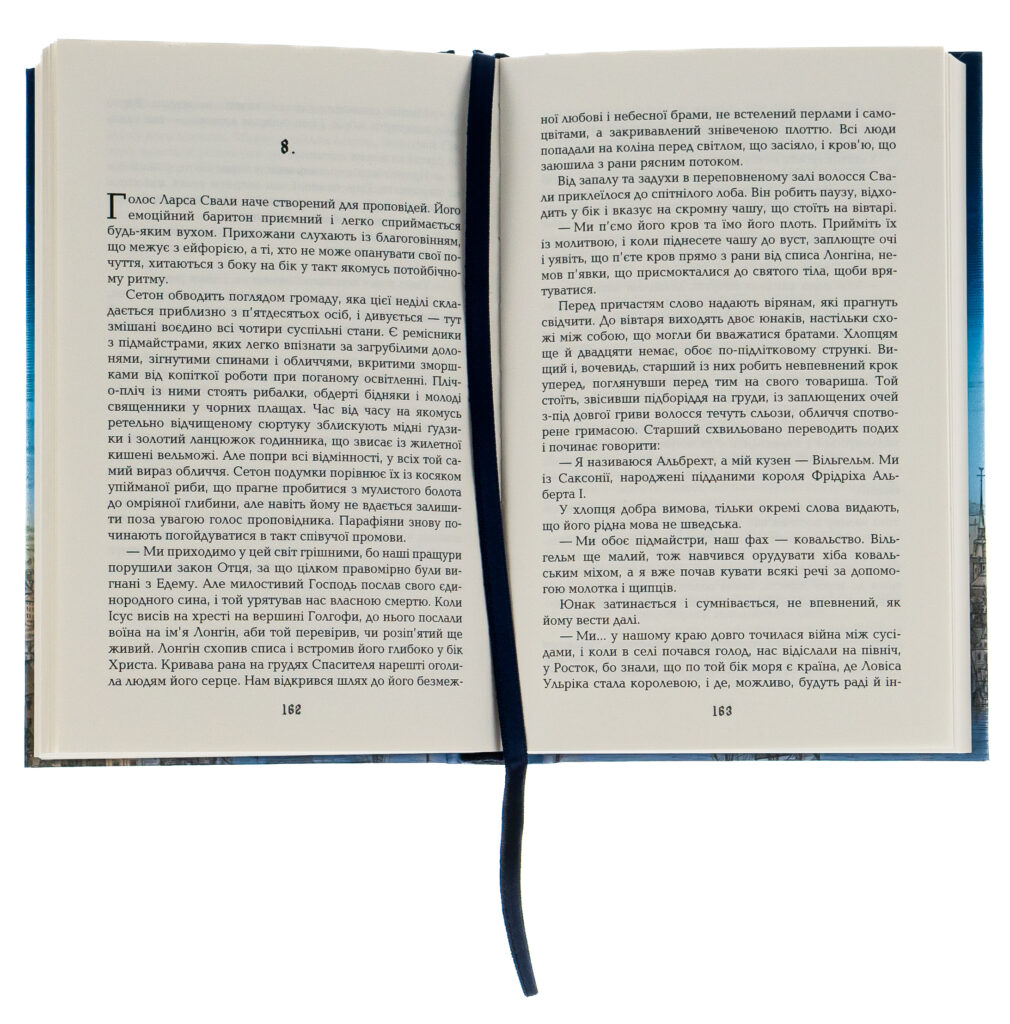
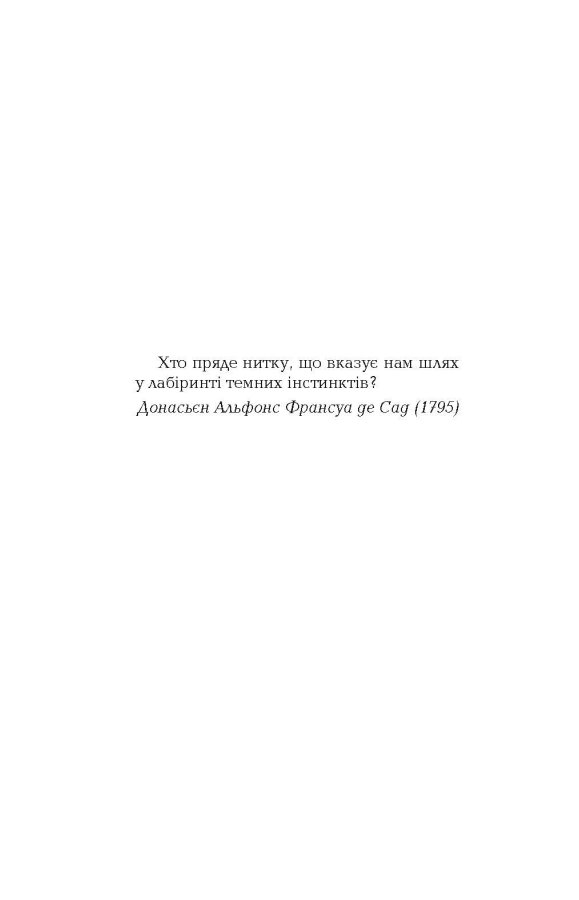
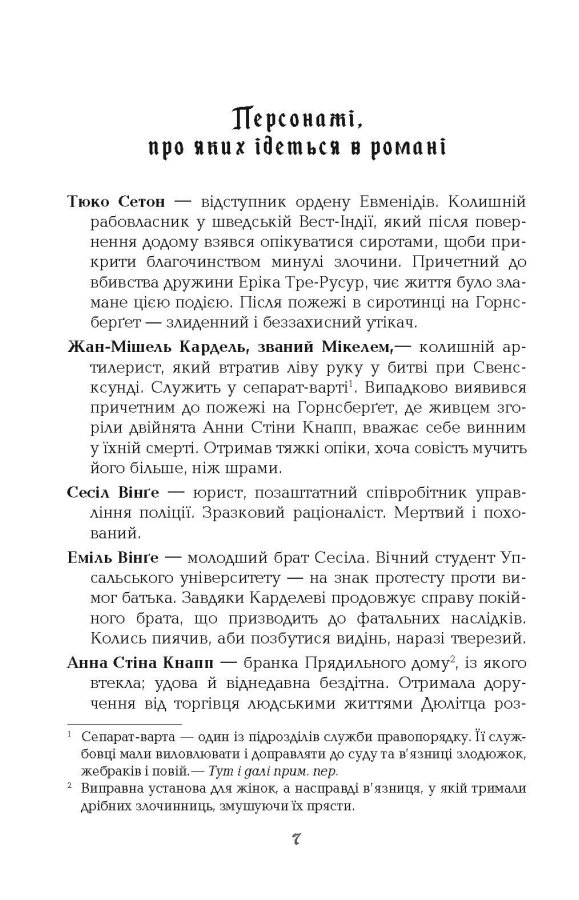
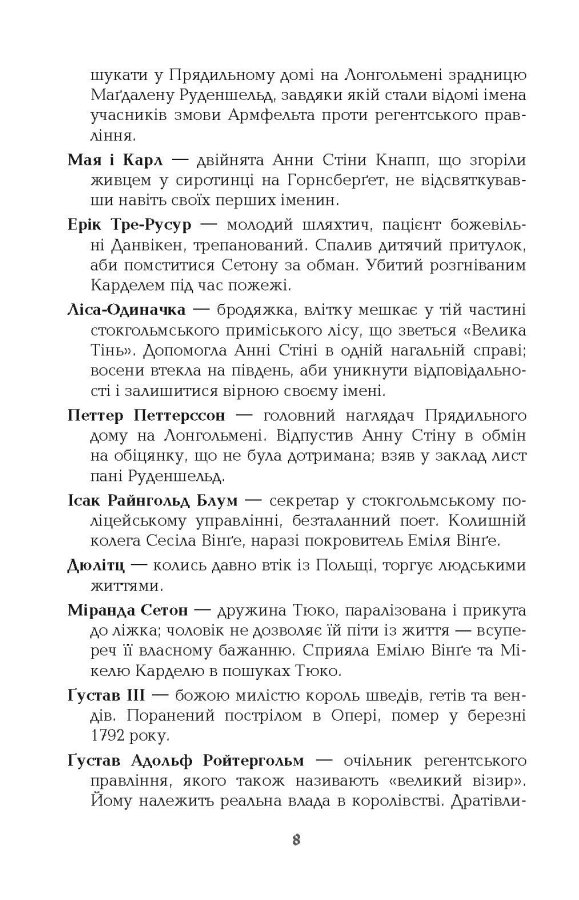
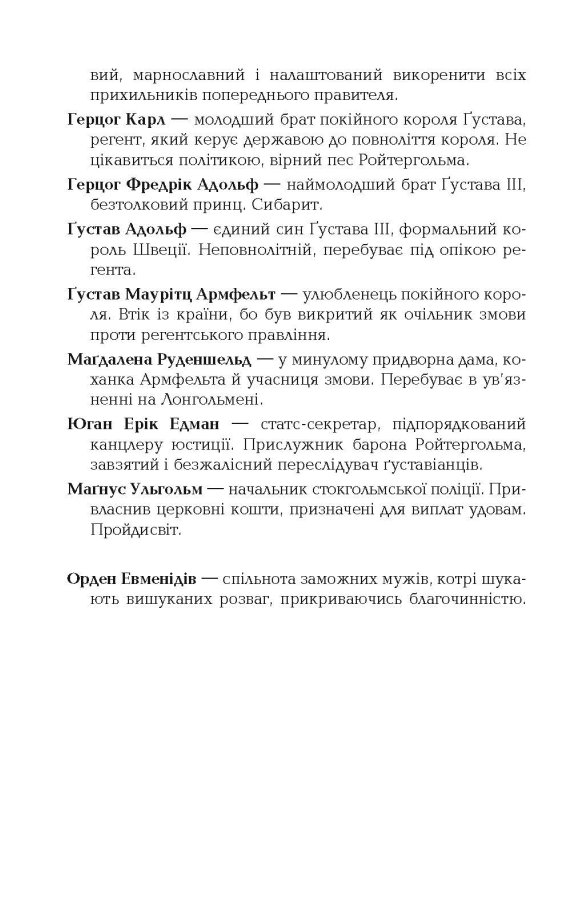
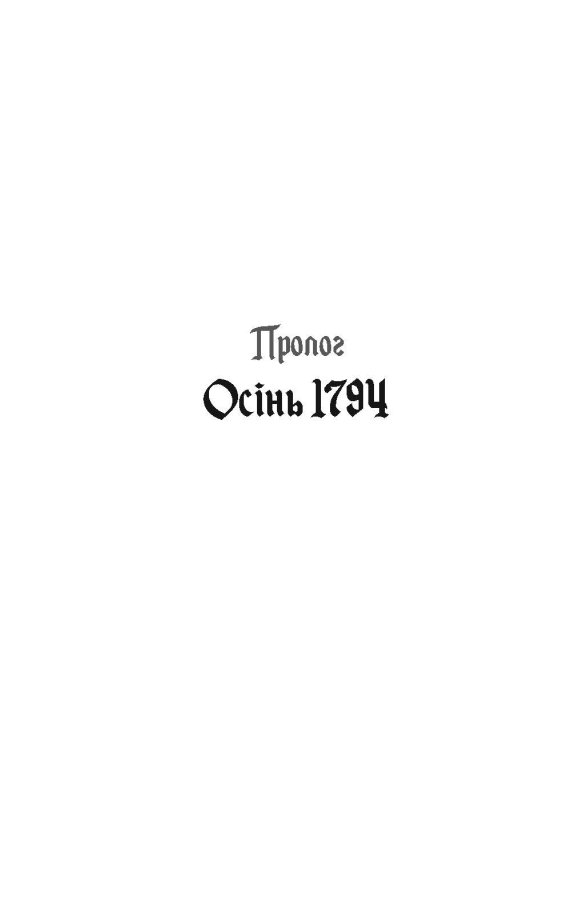
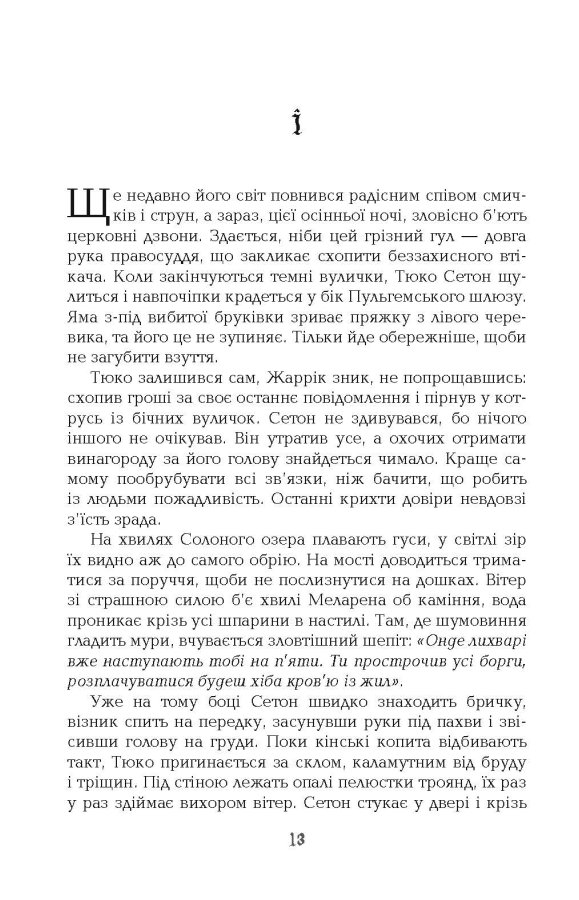
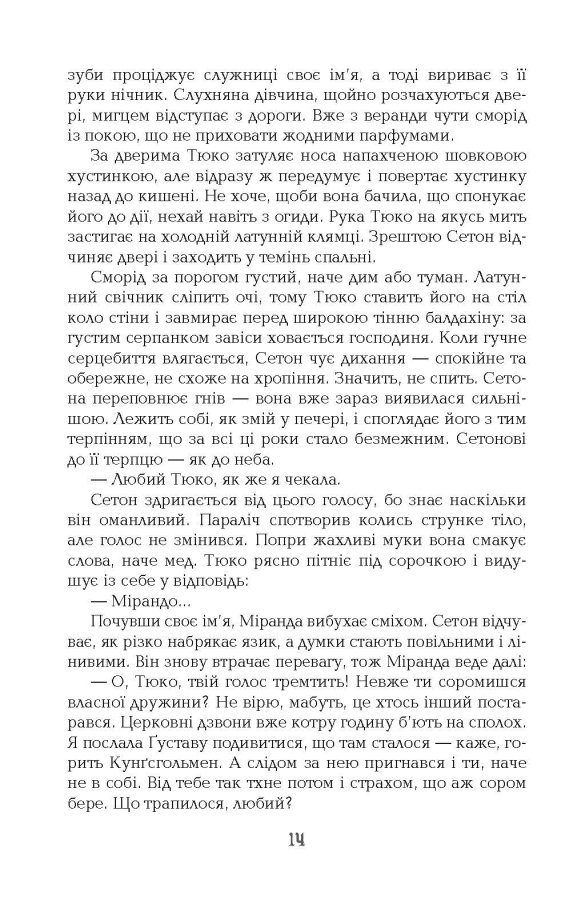
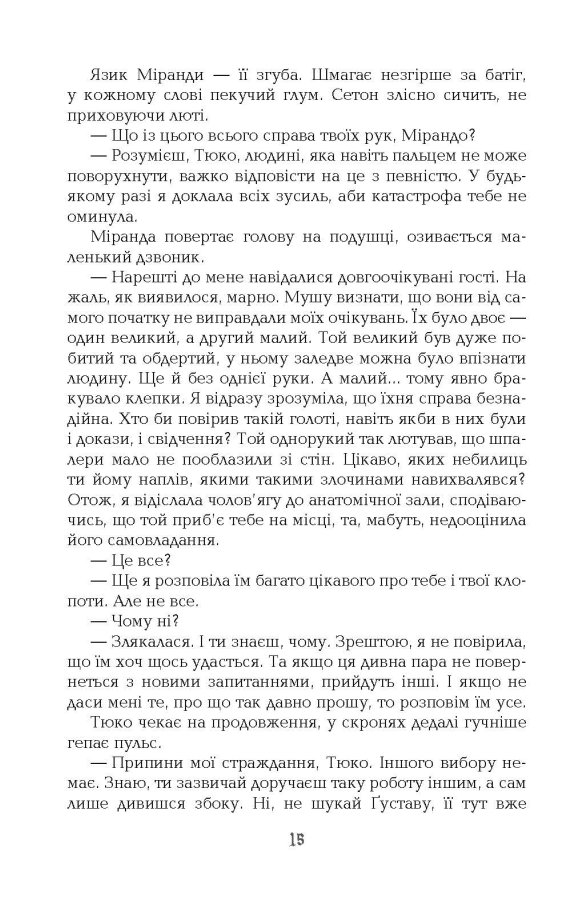
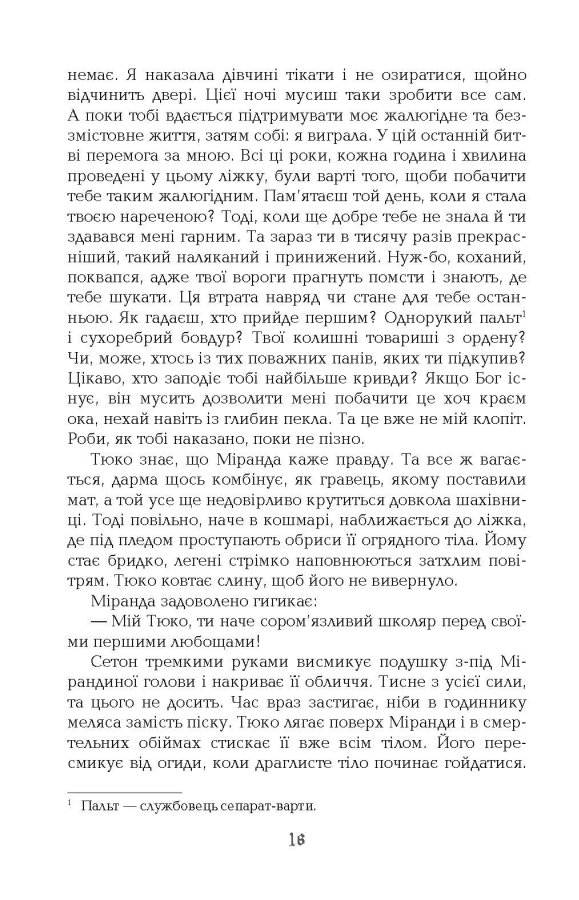
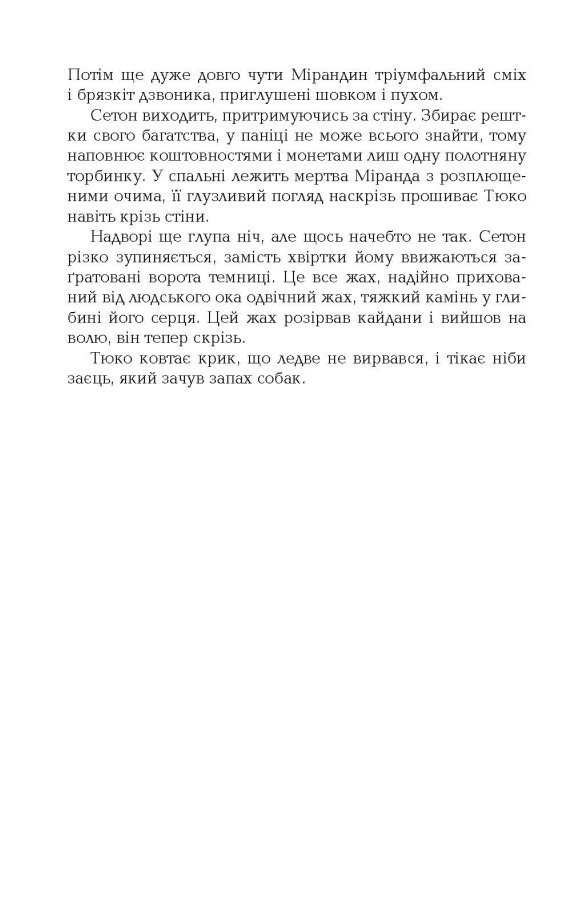
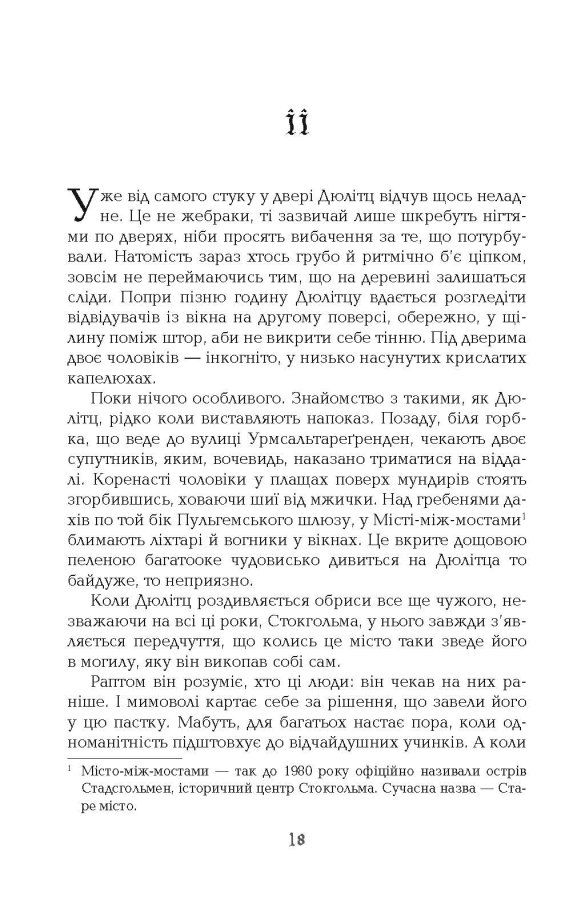
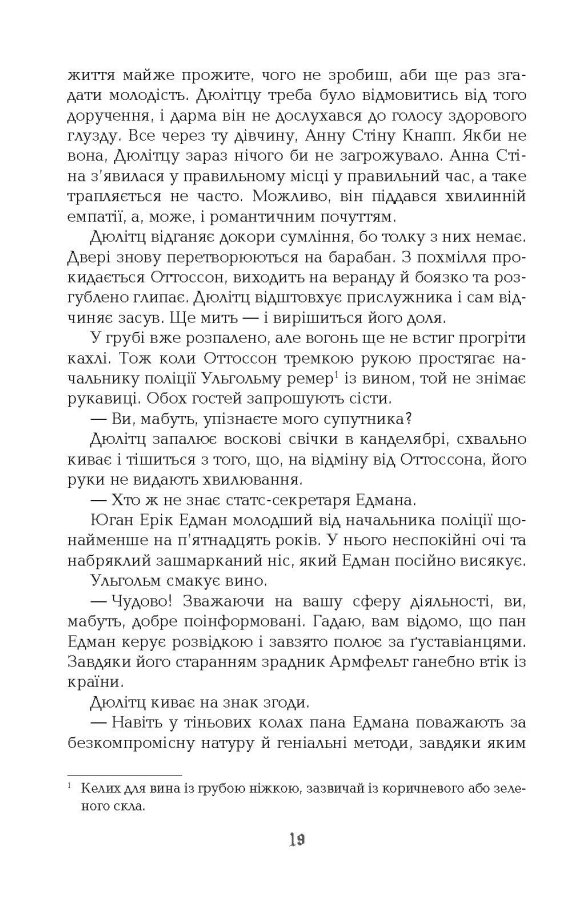
Про книгу
«1795» — третя і заключна частина нуарної трилогії Нікласа НаттоДаґа. І знову перед читачем відкривається епічна картина прихованої розкоші і згубного занепаду епохи регентства, яка розпочалася після загибелі короля Ґустава ІІІ від рук заколотників. Справжній вир амбіцій, схиблених плотських бажань, кривавих злочинів, злиднів та загальної зневіреності. А тим часом містом, наче ранений звір, блукає вже відомий читачеві Тюко Сетон,
Автори
Відгуки
Залишити відгук
Вже прочитали? Оцініть книгу від 1 до 5:
31 reviews for Світовий бестселер: 1795
Швидка покупка
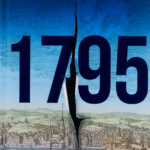
Ваше замовлення вже у нас!
Найближчим часом наші менеджери опрацюють його та зв’яжуться з Вами для уточнення деталей. Дякуємо, що обрали Портал!
Очікую!
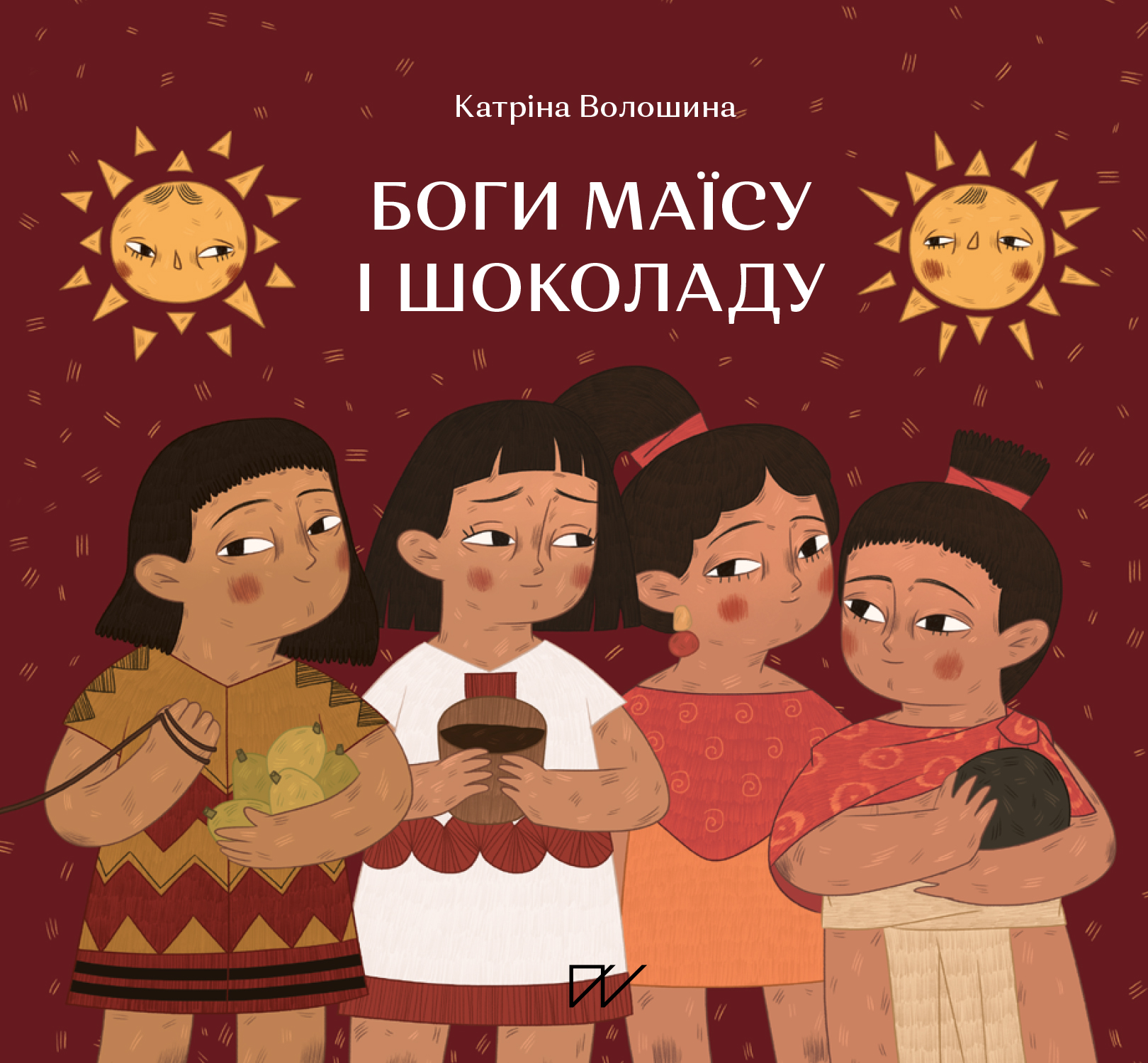

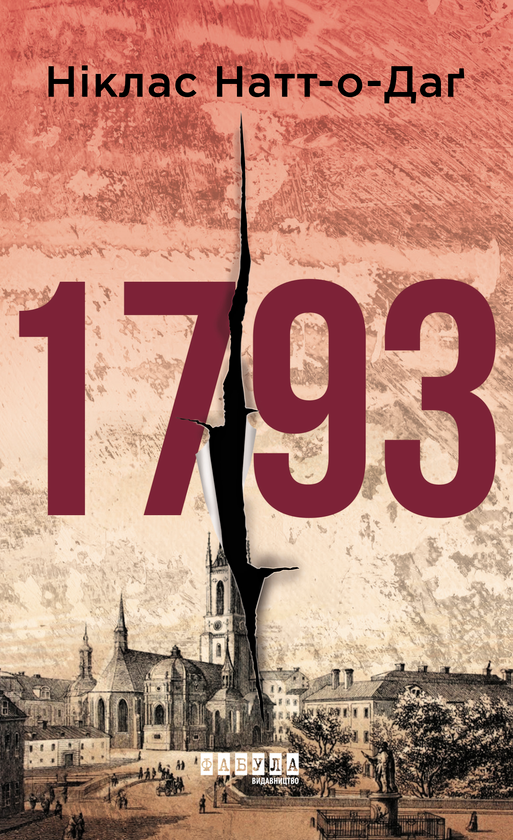
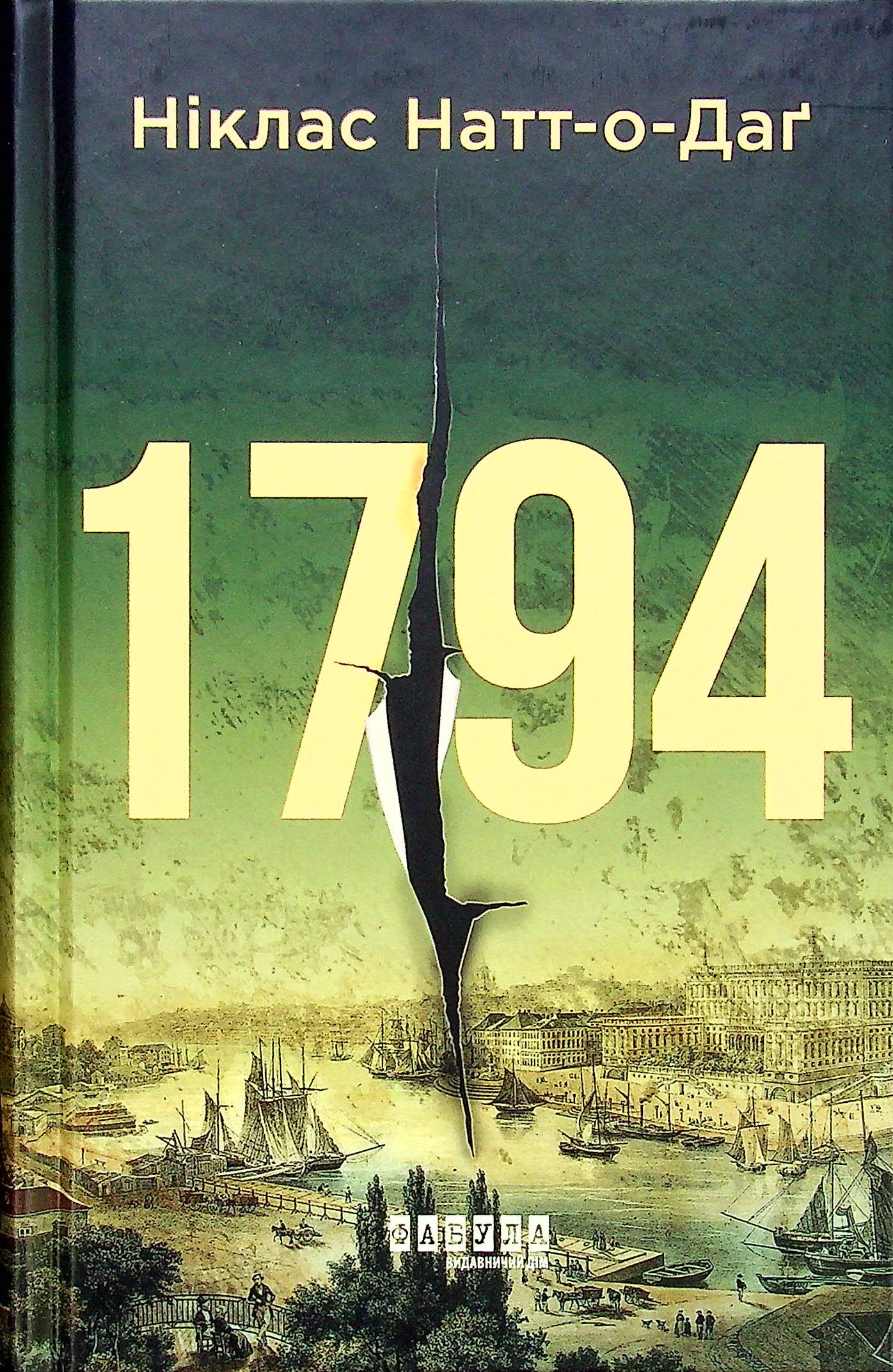
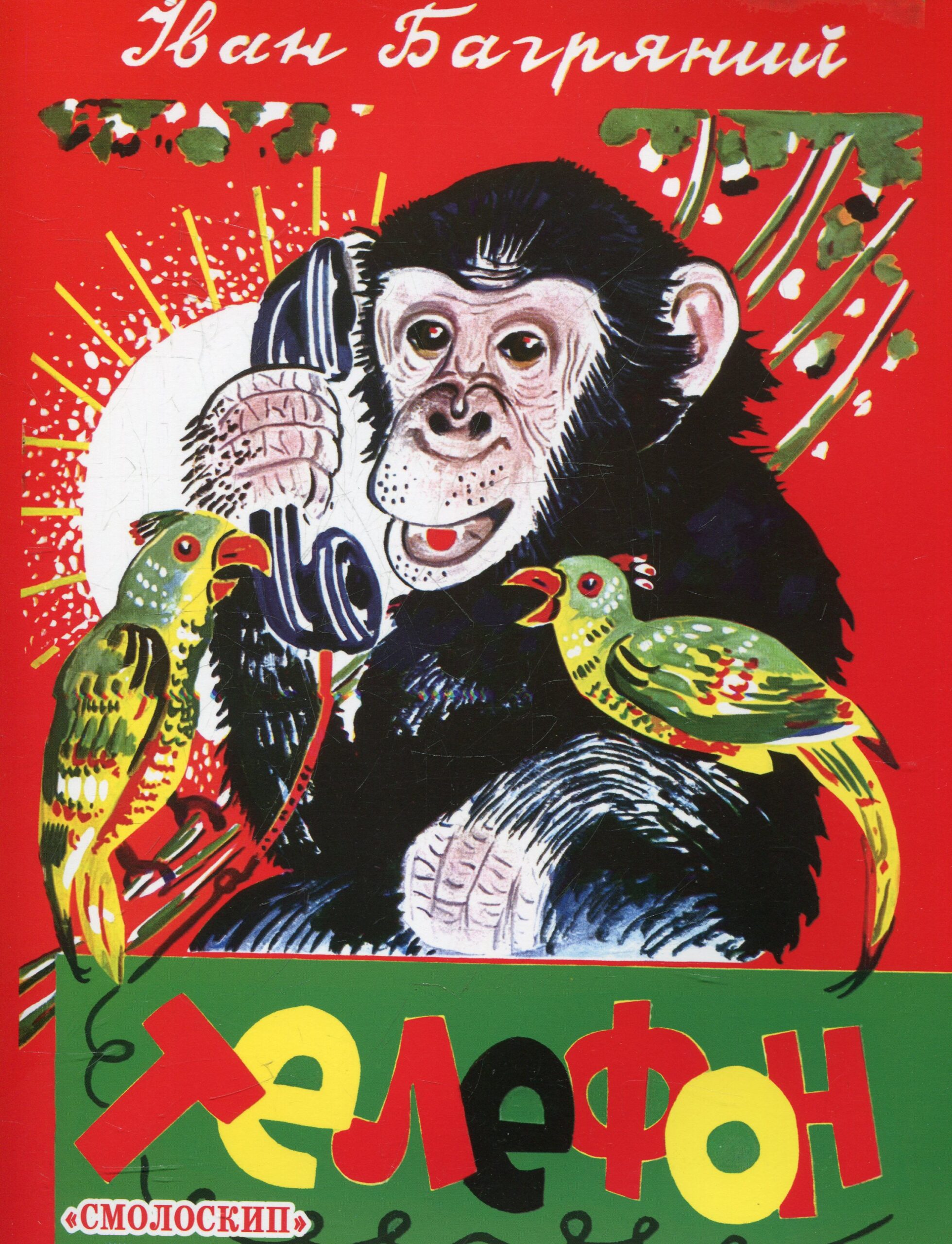
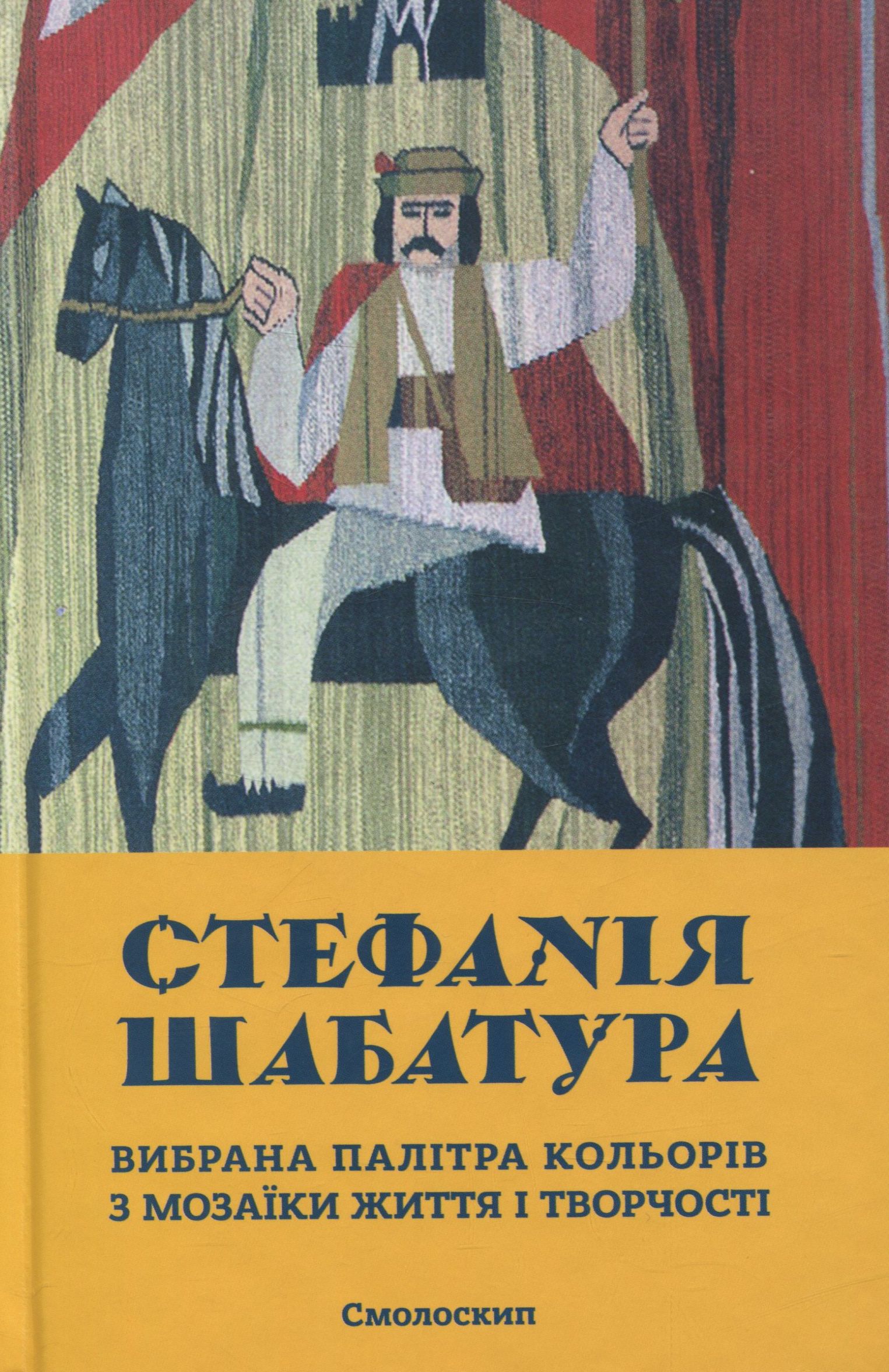
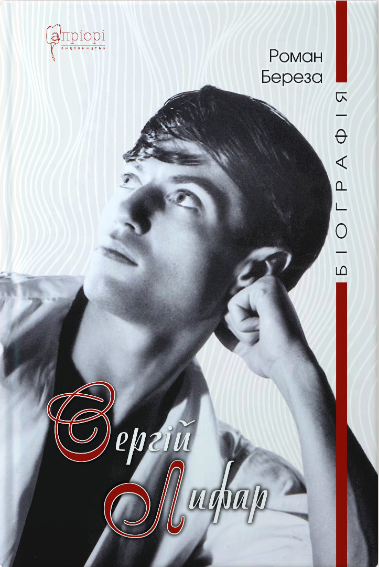
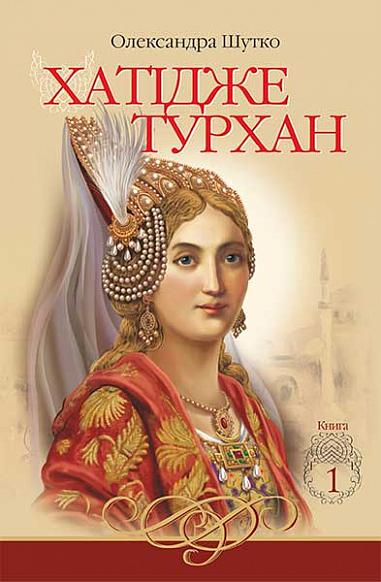
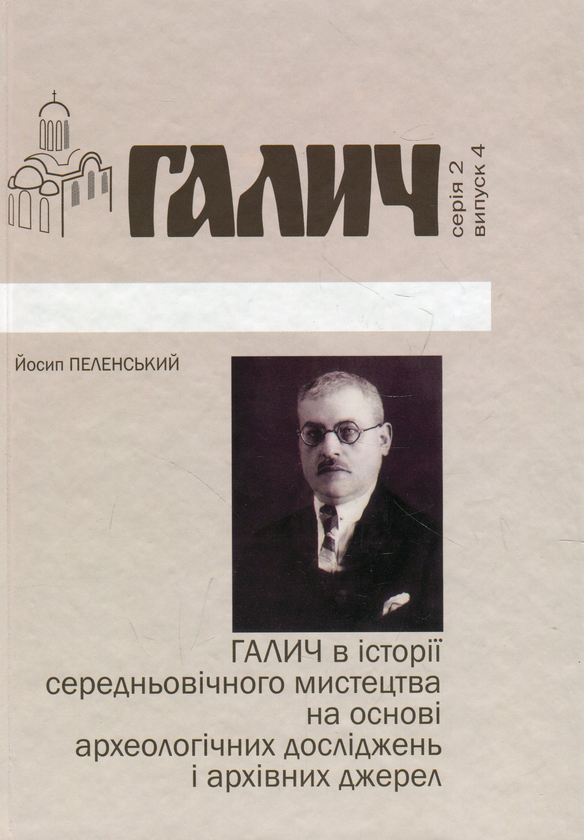
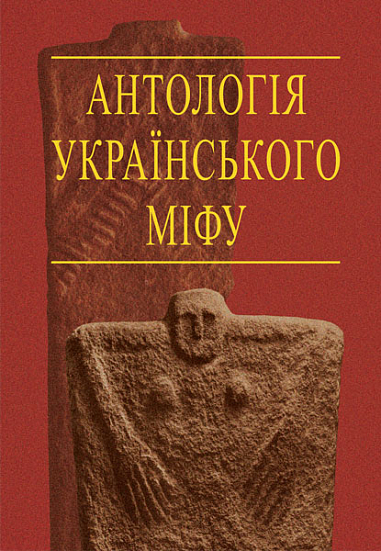
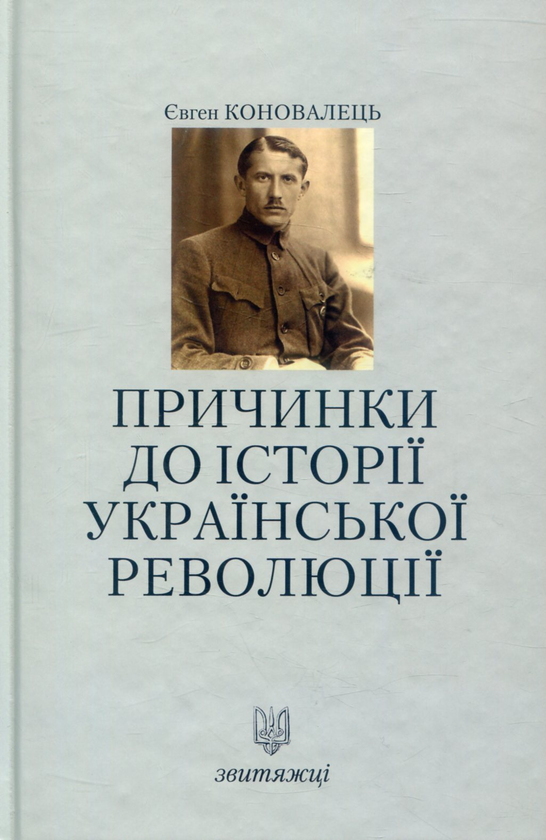
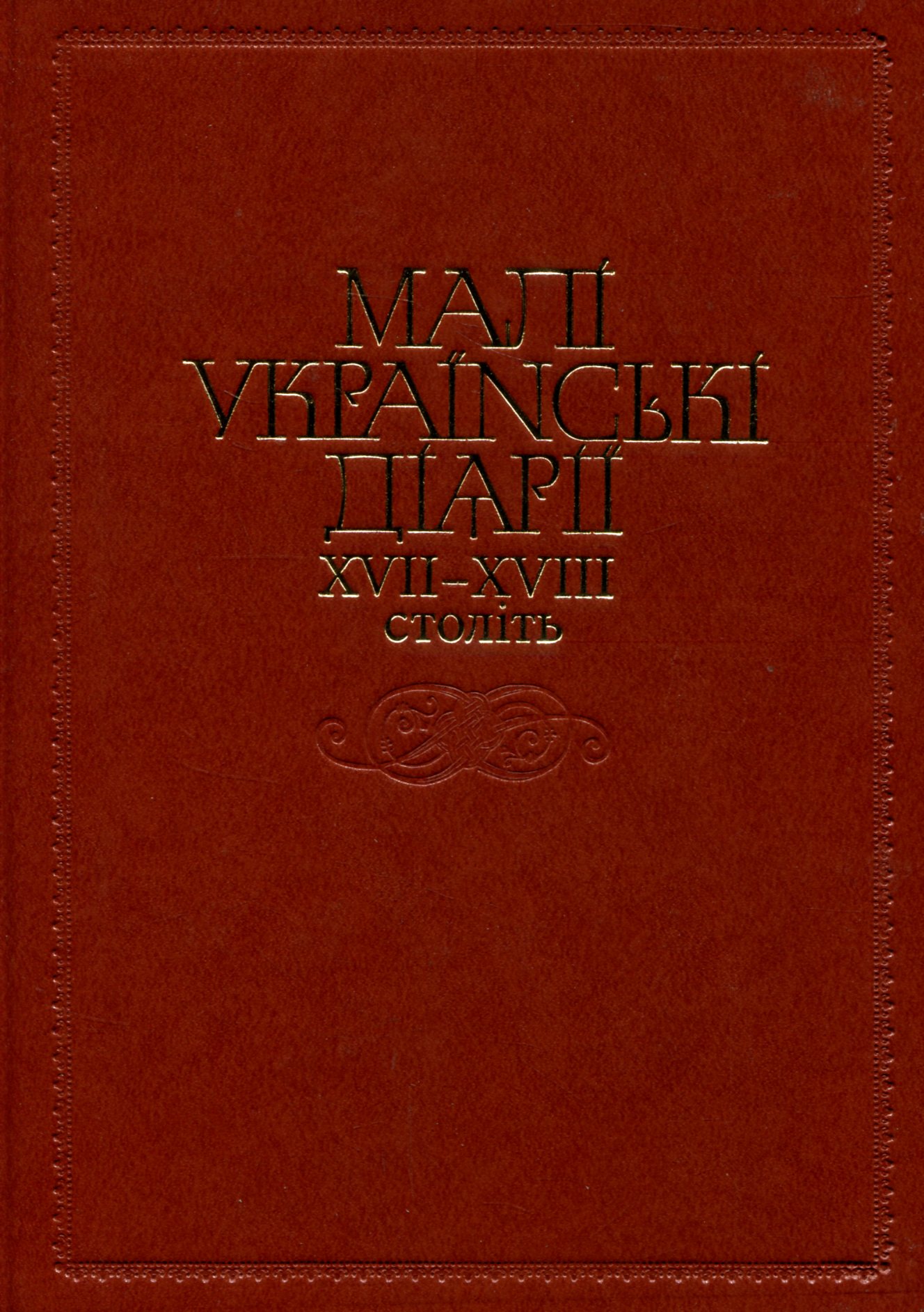

Jacob Berg –
Satan vad den här jäveln levandegör 1700- talet.
Niklas Bergljung –
Nja, inte alls i samma klass som de två första böckerna i serien. 450 sidor lång och det händer i stort sett ingenting.
Maja Ingrid –
Sadly, this didn’t really live up to expectations. Neither this one nor 1794 really lived up to 1793. 1793 was such a fresh breath. The way the story in it was told backwards and the gritty descriptions. 1794 used a similar timeline both jumping forwards and backwards which still made it intriguing. 1795 is in four parts as well but only now part 1-3 takes part spring-summer 1795 and part four during fall 1795. The three first parts covers three different perspectives, and it honestly felt so slow and never really got to the point. I did audiobook the majority of part 2 and 3 though. But that shouldn’t matter really. 1795 is also not quite as gritty as its predecessors.
Fredrik –
1795, eller som jag kallar den, “Staden mellan broarna del 3”, är en bok som handlar om staden mellan broarna, Stockholm. Vi får också reda på vad som händer med Cardwell, Winge och Anna-Stina efter all skit som hänt i staden mellan broarna, och deras jakt på mördaren Ceton, som gömmer sig någonstans i Staden. Mellan broarna.Det är så klart spännande att läsa en bok som utspelar sig i en tid som inte behandlats allt för mycket, och en plats, Staden mellan broarna, som är så igenkännbar men ändå inte. Dock har Staden mellan broarna del 3 samma problem som staden mellan broarna del 1 och Staden Mellan Broarna del 2 (1793 och 1794), nämligen att författaren verkar Staden ha vissa problem Mellan med humöret som förvägrar Broarna honom att låta folk vara glada. Lägg till detta en förläggare som tydligen missat att Staden har använt samma Mellan på nästan varenda Broarna i hela boken som en omskrivning för Stockholm, något som höll på att driva mig till vansinne. Jag kan inte ens minnas frasen just nu, så staden har den påverkat mellan mitt tänkande. Det är på riktigt broarna. Avslutningsvis vill jag citera något viktigt jag lärt mig: STADENMELLANBROARNASTADENMELLANBROARNA STADENMELLANBROARNASTADENMELLANBROARNA STADENMELLANBROARNASTADENMELLANBROARNA STADENMELLANBROARNASTADENMELLANBROARNA STADENMELLANBROARNASTADENMELLANBROARNA STADENMELLANBROARNASTADENMELLANBROARNA STADENMELLANBROARNASTADENMELLANBROARNA STADENMELLANBROARNASTADENMELLANBROARNA
Gintautas Ivanickas –
Pirmąją trilogijos dalį, „1793“ čiupau nemąstydamas – o kaipgi, istorinis detektyvas, mano puodelis arbatos. Gavau ne visai tai, ko tikėjausi, bet labai smarkiai nenusivyliau – taip, detektyvo, kaipo tokio, negausiai, bet istorinis fonas ir niūri švediško retro nuaro atmosfera tai atpirko.Tęsinį, „1794“, jau čiupau su lengvomis dvejonėmis – kur pasuks autorius? Labiau link detektyvo, ar tolyn nuo jo? Pasuko tolyn, bet ir vėl, knygos atmosfera ir veikėjai atpirko dar silpnesnę detektyvinė liniją. Tai irgi smarkiai nepykau. O štai finalas papykdė. Jei „1793“ buvo daugiau mažiau išbaigtas, tai antroji knyga akivaizdžiai beveik visas pasakojimo gijas paliko atviras.Ko tikėtis iš „1795“ jau nujaučiau. Bus dar mažiau detektyvo, bet sužinoti, kuo visa ta istorija, užmegzta antroje knygoje, baigsis – norisi. Tai ir gavau būtent tai, ko tikėjausi. Jei reikėtų „1795“ dėti į kažkurią konkrečią lentynėlę, pasirinkčiau istorinį nuotykinį romaną. Tamsų, niūrų, kuriame jei tik kažkas gali pasukti bloga linkme, būtinai ir pasuks.Bandymas kažką papasakoti apie siužetą pavirstų nemenkais spoileriais tiems, kas dar neskaitė antrosios knygos. Nes iš esmės „1794“ ir „1795“ – viena knyga, viena istorija, tiesiog perskelta pusiau. Ir ačiū autoriui, kad netempia pasakojimo gijų į kokį nors „1796“, o suraišioja visus mazgelius, taip užbaigdamas savo trilogiją.Keturi iš penkių. Tiek visai trilogijai, tiek trečiai jos daliai. Rekomendacijos? Jei tiko „1793“, drąsiai skaitykite tęsinius. Jei netiko – neimkit, nu.
Amira Diallo –
Unfortunately this one does not live up to the previous two books in this trilogy. The story was a lot harder to get into and wasn’t quite as captivating as I would have hoped. Of course, in true 1793 spirit this book is dark as well and the story is gory, sad and tragic in a lot of ways. Unfortunately there is never really any good pay off to getting through the whole thing. The story ends quite abruptly and strangely in a manner that didn’t sit right with me, unfortunately. So overall I am not impressed by this one.
Annie –
Bei 2/3 gebe ich jetzt auf. Das Ende interessiert mich wie die Wasserstandsmeldung des Mekong.
Catsbooksandcoffee –
1795 var en af de bøger der nok med højest forventning blev åbnet herhjemme. Og måske var mine forventninger også for høje, for i forhold til seriens to første bind, føler jeg at 1795 fremstod en smule svagere. Alligevel havde jeg ikke lyst til at lægge den fra mig – beskrivelserne af Anna Stina og Elias og de lister, som Winge og Cardell havde fundet på, var simpelthen for intense til at slippe.Måske skyldes en del af min afstandstagen det, at det bliver mere og mere udbredt at opdele en roman i flere bind fra starten. Det kan medføre, og gør det også her, at det egentlige forbryderplot trækker sig mere og mere i baggrunden. I dette tredje bind virker plottet en smule for langstrakt, og fortællingen mister en stor del af den tidligere sete dramatik.Bogen er opdelt i flere afsnit. Winge og Cardell deler det første i deres søgen efter Anna Stina og den brutale Tycho Ceton. Andet afsnit omhandler Tycho, delvist samtidig, hvilket afklarer nogle åbne spørgsmål fra første del. Det tredje – og for mig det bedste – afsnit fortæller læseren, hvad der skete med Anna Stina. I det sidste afsnit samles alle tråde, men desværre efterlades slutningen en smule åben.Niklas Natt och Dag har i de tidligere bind vist, at hans arbejde med det rige sprog og de fascinerende og malende beskrivelser af samfund og indbyggere, er et af de steder hans store styrke ligger. Men i 1795 er det som om dette kammer en smule over – og det nedsatte bogens tempo lidt for mig. Derfor fandt jeg nogle gange bogen en smule for lang, og at nogle af fortællingens historier unødvendige. De troværdige beskrivelser at miljøer i slutningen af 1700-tallet er dog lige så realistiske og barske som tidligere set.På den anden side efterlader 1795 mig med varigt indtryk grundet min historiske interesse. Det er fascinerende, hvordan forfatteren i sine grundige beskrivelser kan gå helt ned i de mindste detaljer. Der ligger helt sikkert mange timers studier bag disse beskrivelser. En vellykket afslutning på en trilogi, der der toppede mest i bind et og to.
LolaF –
Tercer libro de la trilogía. El libro arranca con una escena del libro anterior, el incendio del orfanato, por tanto es altamente recomendable haberse leído el anterior, aunque luego a lo largo del libro se mencione de forma resumida. Al principio me ha costado un pelín identificar/recordar quién era alguno de los personajes que van apareciendo -¡esos nombres impronunciables!-, pero poco a poco los vas ubicanbdo. La primera parte está contada desde punto de vista de Emil Winge y Jean Michel Cardell, te deja con la sensación de que no ocurre nada, no hay casi acción, ambos deambulan por Estocolmo buscando el paradero de Tycho Ceton, mientras Cardell intenta encontrar a Anna Stina Knapp. La gran protagonista es la cuidad, su miseria, el clima, sus habitantes, sus instituciones, … ya conocidas por los libros anteriores, te deja con la sensación de que no aporta nada nuevo. !Le falta algo!. Algunas escenas se reanudan después a lo largo del libro. El libro empieza a cobrar algo de vida cuando aparece en escena Tycho Ceton y nos relata su versión a partir del incendio, dónde se ha escondido, cómo ha conseguido sobrevivir, cuál es su pasado y su obsesión. Su nuevo plan para volver a congraciarse con los Euménides. Un plan cruel y un tanto desagradable, como era de esperar, que le permita recuperar su posición, aquello que según él le han robado y por ello su afán de venganza, no dudando a la hora de manipular a alguien muy cercano a Cardell. Este libro está dedicado a la culpa, el sentimiento de culpa y en parte en los culpables. La culpa es una pesada carga que te oprime y condiciona tu día a día. Cada cual la lleva como mejor puede, algunos no consiguen liberarse. Tal vez la temática junto a una ciudad deprimente, han contribuido a que algunas partes me resultasen un poco más tediosas de leer. Las diatribas filosóficas sobre la Fe, el bien y el mal, las herejías, la homosexualidad, … tampoco han ayudado a que me resulte más ameno.En esta entrega, me ha gustado más el personaje de Cardell que el de Emil. Mencion especial al rescate del personaje de Elías, un huérfano de doce años que estaba en el orfanato incendiado, un sobreviviente nato, que denota una gran madurez, ingenio y responsabilidad cuando se hace cargo de una persona que no puede valerse por sí misma, alimentándola casi como un pararillo, cuidándola y aseándola con los pocos medios que consigue. Loable el fin que tenía Elías, “rescatar” a otra persona. Lástima para Elías que aquí prime la inocencia del niño al adulto y que no pueda soportar la realidad, una realidad cruel menos bonita de lo que esperaba.La trilogía queda cerrada. Muchos de sus personajes encuentran un final, alguno sobrevive o tal vez sería más correcto decir que siguiendo el espíritu del libro más bien malvivirá mientras pueda, en alguno puede que aún haya esperanza.La ambientación es tan buena que la trilogía resulta un poco deprimente. Tampoco ayuda a mejorar los ánimos la temática de los libros: la miseria, la maldad intrínseca en las personas o el sentimiento de culpa. La crítica a las instituciones es feroz. Los gobernantes y sus dos bandos conspirando también salen mal parados -aunque aquí tengo que reconocer que me pierdo un poco con la historia de Suecia-. Es una constante, con mayor o menor peso en cada libro, que la mayoría de sus habitantes viven/malviven en la miseria y la insalubridad, expuestos a las inclemencias del clima, al hambre, a los abusos. Teniendo en cuenta que al libro le falta algo hasta que entra en escena Tycho y alguno de los detalles que he mencionado, mi valoración es un poco más baja que los anteriores. Y no sé si en caso de haber continuado la serie, si leería un cuarto libro. Acabo echa polvo después de leerlos. Valoración: 7,5/10Lectura: junio 2022
Caro –
Trilogía que va de más a menos, el último me ha costado un mundo terminarlo y entrar en el tema ha sido como un tiovivo.
Mis Lecturas –
3,5 ⭐
Iñaki Tofiño –
No hacía falta. El autor se podría haber ahorrado el trabajo de escribirlo y los lectores el de leerlo. Estertores del libro anterior que llenan páginas y páginas sin llegar realmente a ningún lado. Perfectamente obviable.
Charlie Parker –
Final de la trilogía de Estocolmo. Gran comienzo de este autor con estas tres novelas en un marco histórico de la Suecia de finales del siglo XVIII.Ha conseguido recrear un ambiente tétrico muy miserable que a veces huele de tanta suciedad que describe. Los personajes principales han sufrido tanto como el ambiente donde los ha situado Niklas .El guardia manco Cardell hecho polvo siempre no salía de una cuando se metía en otra. Los hermanos Winge uno tísico y el otro cerca de la locura con alucinaciones con sus hermanos y luego tenemos a Anna Spina protagonista de algunos de los mejores momentos de la serie (vaya parto/descripción de qué hacer para salvar uno de los mellizos😱 o atrapada en el túnel de las hilanderas 😱) angustiosos momentos.Y los malos y sus horrores. No sé si lo que Niklas describe en las novelas lo ha sacado de leyendas suecas o es idea suya para impresionar a sus lectores pero vaya tela.El final me ha dejado un poco frío 😃 pensaba que Cardell usaría su brazo de madera.Esperemos a ver qué hace Niklas en sus próximos libros, me da a mí que estos personajes no han dicho su última palabra.
Marta entre libros –
Esta novela era una de las más esperadas para mí este año. Ya he dicho en varias ocasiones que 1793 es y será una de las mejores novelas que he leído. 1794 mantuvo un gran nivel, pero esta entrega me ha decepcionado. Con esto no quiero decir que no la leáis ni que es una mala novela, es solo que esperaba mucho más de lo que me he dado.🇸🇪No puedo hablar del argumento, es cierre de trilogía y empieza justo donde termina la parte anterior, así que todo lo que diga es spoiler de la segunda entrega.🇸🇪El talento del autor es innegable, y ha habido algunos momentos, sobre todo en la segunda mitad en la que podíamos vislumbrar al Niklas que nos conquistó en 1793. Esa buenísima recreación histórica de Estocolmo a finales del siglo XVIII, sumida en una convulsa situación política. Esos bajos fondos llenos de miseria. Sus personajes todos llevados al límite de sus posibilidades. Y, sobre todo, esa magnífica prosa que consigue hacer que sentimientos, sensaciones y, hasta olores, traspasen las páginas. No me cansaré de elogiar el estilo narrativo de este autor, para mí de lo mejorcito que he leído.🇸🇪Pero creo que le ha fallado algo en el argumento, creo que ha estirado una trama que hubiera quedado mejor cerrada en la anterior entrega.Sigue leyendo en:https://www.instagram.com/p/Cfdl94hD6…https://martaentrelibros.com/2022/07/…
Choco Con Churros –
Excelente trilogía, aunque esta tercera parte ya empieza a dejarme una especie de agotamiento físico ante tanta mezquindad, miseria e insalubridad.Tal vez lo ideal hubiera sido leer algo alegre entre un libro y el siguiente.Ese final, uno de los pocos posibles llegados a ese punto, ha terminado de pasarme por encima como una apisonadora y me ha dejado aplastada como un sello.Una trilogía buena, buena, pero agotadora y de insoportable tristeza.Destripadoras.
Effie Saxioni –
“Το σκοτάδι πλησιάζει όλο και γρηγορότερα, μερικές φειδωλές ώρες γκρίζου φωτός από αργά το πρωί μέχρι νωρίς το απόγευμα. Πάνωθέ του τα σύννεφα έχουν αράξει και στηρίζονται στις στήλες των καμινάδων.Χαμηλοτάβανος κι ο ίδιος ο κόσμος.”Ένα βιβλίο, κρύβει τόσες ιστορίες όσες και τα μάτια που το διαβάζουν, κι εγώ δεν έχω βρει πιο σκοτεινή και ταυτόχρονα όμορφη πρόταση από αυτήν την τελευταία, στα χιλιάδες βιβλία που έχουν περάσει από τα χέρια μου.Μια αριστουργηματική τριλογία έκλεισε και δεν μπορώ παρά να δώσω ξανά τα συγχαρητήρια μου στον κ. Κονδύλη για την αξιέπαινη δουλειά του στην μετάφραση. Έχω πει ξανά, μέχρι να μάθω σουηδικά, θα πιστεύω ότι η ελληνική απόδοση χαρίζει τα μέγιστα στο αρχικό κείμενο.Αν αντέχετε τη σκοτεινιά και την ιστορική βία, βάλτε την τριλογία αυτή στη λίστα σας.
Helena (Renchi King) –
Dugo sam čekala da prevedu zadnji dio ove sjajne trilogije i ostala sam razočarana. Izostao je onaj osjećaj genijalnog, velikog finala koji se navještao. Puno slabije od prvog i drugog dijela.
Georgia –
Δείτε επίσης και στο Chill and readΗ ώρα για το τρίτο και τελευταίο μέρος της τριλογίας έφτασε και τα σκοτάδια της Στοκχόλμης του παρελθόντος κλείνουν προς το παρόν. Δεν ξέρω αν θα έχω την ευκαιρία να διαβάσω κάτι παρόμοιο στο μέλλον, μπορώ όμως με σιγουριά να πω πως η συγκεκριμένη τριλογία μου έδωσε περισσότερα από όσα περίμενα. Είχε ιστορία, βία, έγκλημα, ωμές περιγραφές και τις πιο σκοτεινές πτυχές της ανθρώπινης ψυχής. Και πάνω που λέγαμε ότι είχαμε πια συνηθίσει από τα όσα αηδιαστικά είχαμε διαβάσει στα προηγούμενα δύο βιβλία, ήρθε το τελευταίο να μας αποτελειώσει.Η ιστορία μας συνεχίζει ακριβώς από το σημείο που έμεινε στο τέλος του 1794. Μετά τη φωτιά που έκαψε μαζί και τις ελπίδες για ένα καλύτερο αύριο και άφησε πίσω μόνο ενοχές και δυστυχία. Το πολιτικό σκηνικό συνεχίζει να παίζει το ρόλο του και σε αυτό το βιβλίο, μιας και έχουν μείνει ανοιχτά κάποια θέματα από το προηγούμενο. Είναι σημαντικό να βρεθούν οι συνωμότες και ο Βαρόνος Ρόιτερχολμ δεν έχει πολύ χρόνο μέχρι να βρει και να τιμωρήσει όσους του εναντιώθηκαν. Πρέπει να βρεθεί αυτό το γράμμα, για το οποίο η Άννα Στίνα Κναπ επέστρεψε στον εφιάλτη. Όμως τώρα είναι και η ίδια χαμένη και ούτε ο Καρντέλ δεν μπορεί να τη βρει, όσο και να ψάχνει.Όμως η κορύφωση της ιστορίας θα έρθει και πάλι μέσα από το έγκλημα. Ο γνωστός σε όλους μας Τίκο Σέτον, ο άνθρωπος που γνωρίσαμε στο προηγούμενο βιβλίο και που δεν συμπαθήσαμε ιδιαίτερα, θα έχει εδώ ένα ολόκληρο μέρος του βιβλίου για να μας συστηθεί εκ βαθέων. Τέσσερα μέρη έχει και αυτό το βιβλίο. Στα τρία πρώτα εστιάζουμε σε διαφορετικούς χαρακτήρες και βλέπουμε την πορεία τους κατά τη διάρκεια της Άνοιξης και του Καλοκαιριού του 1795. Στο ένα έχουν τον Ζαν Μίκαελ Καρντέλ και τον Εμίλ Βίνγκε και βλέπουμε πως περνούν αυτοί οι δύο το χρόνο τους. Ο Καρντέλ ψάχνοντας την Άννα Στίνα Κναπ και οι δύο μαζί ψάχνοντας στοιχεία ώστε να τιμωρηθεί ο Σέτον, αλλά και τον ίδιο τον Σέτον. Ένα άλλο μέρος εστιάζει στον Τίκο Σέτον, όπου βλέπουμε πως περνάει το χρόνο του και πως κρύβεται από το δίδυμο που τον αναζητ��, ενώ παράλληλα προσπαθεί να επανέλθει με δόξα και τιμή στις τάξεις της αδελφότητας. Και στο τρίτο μέρος βλέπουμε την πορεία της Άννα Στίνα, από τη μέρα της φωτιάς κι έπειτα. Τα ερωτηματικά που μας αφήνει το πρώτο μέρος, απαντώνται στα επόμενα δύο και έτσι φτάνουμε στο τέταρτο μέρος όπου και η ιστορία συνεχίζεται και ολοκληρώνεται με όλα τα πιόνια στο παιχνίδι.Για άλλη μια φορά, ο Niklas Natt och Dag στήνει με μαεστρία τη σκακιέρα του στην Πόλη ανάμεσα στις Γέφυρες και προκαλεί δυνατά και ανάμεικτα συναισθήματα. Μας θυμίζει τη σκοτεινιά της εποχής, κάθε που πάμε να την ξεχάσουμ�� και, βασισμένος και στα πολιτικά παιχνίδια της εποχής– ο νεαρός πρίγκηπας φτάνει σε ηλικία να αναλάβει τη βασιλεία και άρα κάποιοι ισχυροί άντρες θα πάψουν να έχουν την ίδια επιρροή όταν γίνει αυτό –ολοκληρώνει την ιστορία που άρχισε να χτίζει στο πρώτο βιβλίο και οδηγεί τους ήρωές του στην κάθαρση.Μια φοβερή τριλογία κατάλληλη και για τους λάτρεις του αστυνομικού – μυστηρίου, αλλά και για αυτούς του ιστορικού μυθιστορήματος.
Vaso –
Μετά το σκληρό τέλος του 1794, έρχεται το τρίτο και τελευταίο μέρος της σκοτεινής αυτής τριλογίας του Σουηδού συγγραφέα. Μιας τριλογίας τοποθετημένη σε ένα χρονικό πλαίσιο που σε όλη την Ευρώπη γινόταν αλλαγές σε πολιτικό επίπδο, αλλά περισσότερο σε μια Στοκχόλμη όπου η διαφθορά, η βία και τα ανομολόγητα πάθη πηγαίνουν χέρι χέρι με την αριστοκρατία. Τα τέσσερα μέρη στα οποία είναι χωρισμένο το 1795 είναι περισσότερο επικεντρωμένα στους πρωταγωνιστές της ιστορίας. Μας λύνονται απορίες, απηυδίζουμε με τη βαναυσότητα που κάποιοι κρύβουν πίσω από τα προσωπεία που τους χαρίζει η θέση τους και τέλος, προφανώς και δε λύνονται όλα δια μαγείας, αλλά μας αφήνει μια γλυκόπικρη γεύση. Ο συγγραφέας, σαφέστατα ασκεί έντονη κριτική στην αριστοκρατία των προηγούμενων αιώνων και στον τρόπο ζωής τους. Άλλωστε και στα τρία βιβλία, η ατμόσφαιρα που επικρατεί, είναι καταθλιπτική – άνθρωποι που ζουν μες την ανέχεια, τη βρώμα και τη δυσωδία, η εεκμετάλευση των αδυνάτων, η μη τήρηση κανόνων υγειηνής και φυσικά οι άθλιες συνθήκες ζωής στα διάφορα ιδρύματα (ψυχιατρικά και μη).
Justo Martiañez –
3/5 Estrellas (y soy generoso)Que bonito es escribir un libro de éxito mundial (1793), que si libro del año, autor revelación…..si, el primer libro de la serie me gustó mucho.Pero qué difícil es mantener el nivel, la intensidad, la originalidad, qué difícil es resistirse a los cantos de sirena de las editoriales para estirar el chicle del éxito, tras mucho tiempo persiguiendo la publicación de su primera obra y tras muchas puertas cerradas en las narices (cómo cuenta el propio autor).Porque 1793, fue un golpe de aire fresco, o fétido, como bien entenderán los que hayan leído este libro, un thriller histórico fuera de lo común, con una ambientación soberbia que te transportaba a lo más profundo de la miseria, la degradación y depravación humana, con unos personajes potentes y atractivo-repulsivo, pero que no te dejaban indiferente.Esta 3ª entrega mantiene el escenario, la ambientación sigue siendo soberbia, pero poco más, es como un cascarón vacío. Seguimos estando en Estocolmo en los años finales del siglo XVIII. El país está tremendamente tensionado tras el asesinato del rey Gustavo III, entre los partidarios de acabar con la monarquía absoluta, embebidos de los vientos revolucionarios franceses, y los que ven en el hijo del difunto rey, Gustavo IV Adolfo, la continuidad del sueño absolutista e imperialista de Suecia (Finlandia formaba parte del país en esos años y la guerra con Rusia acechaba en toda la frontera)En el desarrollo de la trama asistimos al agotamiento de personajes que aparecen en entregas anteriores, Cardell, Emil Winge, Anna Stina, Tycho Ceton. Siguen manteniendo su carisma, pero la trama es floja, floja. Intenta vendernos una intriga política, dentro de la depravación y la miseria habitual, pero no llega ni de lejos a la intensidad de las entregas anteriores, sobre todo la primera.Creo que el señor Natt Och Dag, debe dar por concluida esta serie y buscarse otras historias, porque esta está amortizada.Me da a mi que voy a tener que visitar Estocolmo. Entra la serie Millenium y esta, no he sido capaz de aclararme los más mínimo del maldito callejero. A ver por donde sale ahora el autor. Tiene un bonito desafío, cuando el nivel se pone muy alto……..
Javir11 –
6.75/10A pesar de empezar desde el momento que finalizó el anterior, me ha costado entrar en la historia y sobre todo situar a los personajes. Esos pequeños resúmenes de la trama que tan bien vienen y que poco se emplean. Debido a esto, el primer tercio de la lectura he ido un poco a remolque y me ha costado encontrar mi ritmo. A partir de ese momento ya he sido capaz de situarme y centrarme en disfrutar y no en ver si me había perdido algo por el camino.Una vez más destacaría la ambientación. He leído muchos libros y puedo asegurar que el Estocolmo de finales del siglo XVIII es de los peores sitios con los que me he topado. Es casi como si pudieras respirar la desesperación de la gente que malvivía, y mucho, en esa lúgubre ciudad. Masticar su angustia, beber de su desdicha. Son gente desgraciada, conscientes de su miseria e incapaces de hacer nada para salir de ella. También me han gustado los personajes, sobre todo Cardell, el cual representa a la perfección lo comentado anteriormente.Por otro lado, creo que toda la trama detectivesca flojea y mucho. Simple, sin mucha gracia, más bien sosa, cumple, pero no aportada nada interesante. También me esperaba mucho más del antagonista de la historia, del cual por fin conocemos su situación. Bastante flojitos sus POV y muy lejos de lo que esperaba de él. Resumiendo, final de esta trilogía que a nivel de ambientación le pondría un 10, pero que en otros aspectos ha ido yendo a menos desde un notable primer libro. La trama en este tercero pincha bastante y aunque en general el desenlace lo cierra casi todo, no lo hace con buen sabor de boca.Solo lo recomendaría si de verdad disfrutaste los dos primeros.
Ioulia Ilvanidou –
3,5
Sandra Koka (pielasit_sirdi) –
Sajūta, ka pirmajā grāmatā autoram kāds ir teicis, ka viss ir ideāli, bet tās asinis un vardarbība šķebina dūšu, tāpēc 1795 ieslīdējis mierīgos ūdeņos. Ja pirmajās divās (nepārspējami 1793) valdība vardarbības, šausmu un vēstures combo, tad 1795 palikusi tikai vēsture. Tikai trešā nodaļā uzplaiksnī autora agrākais spraigums, bet arī tas neizglābj vairs sajūsmu gaidošos lasītājus. Nepārprotiet autors raksta lieliski, nezinātājam šis būs pietiekami laikmetu detalizēti aprakstošs romāns, kurā ir netīkamas detaļas un drūma atmosfēra, bet tas tas nav, kas burtiski uzspridzināja 1793. Vai esmu vīlusies? Visdrīzāk nē, goodreads vērtējums pats pačukst priekšā. Vai es nožēloju laiku? Nebūt nē, bet priecātos, ja autors būtu apstājies pie 1793/1794 un nemēģinātu salasīt drumstalas, ko bīdīt no viena galda stūra līdz otram. 3.5⭐️
Kurkulis (Lililasa) –
Lai nu kas, bet tumšais apgaismības laikmets autoram padodas izcili. Uz viņa fona Indreka Hargla aptiekāra Melhiora viduslaiki šķiet gaiši. Es salu un miru no karstuma grāmatas lappusēs, un zināju, ka negribu dzīvot 18.gadsimta Zviedrijā nedz kā aristokrāts, ne ierēdnis, ne nabags. Bet triloģijas nelaime ir tur, ka laikam daļas jālasa tuvā secībā. Galvenos faktus atceros, bet mani nomocīja kaut kas notikušais starp Kardelu un Emīlu Vingi, kāpēc viņi runā, ka nevar būt draugi. Ja par “1795” kā detektīvu, tad, atšķirībā no vides, man pietrūka spraiguma. To autors, šķiet, bija pataupījis beigām. Un nē, man nepietrūka asiņu. Pietika ar smakām.Kad tuvojos otrās grāmatas “1794” noslēgumam, solījos, ka trešo vairs nelasīšu, tomēr autors bija atstājis tik atvērtas beigas, ka, protams, vajadzēja arī trešo. Bet to pirmatnīgo sajūsmu vairs nevarēju noķert, jo, šķiet, nu jau man tās vēsturiskās vides bija par daudz. Un par maz galveno varoņu rīcības. Ne ar ko jaunu trešā daļa vairs nepārsteidz. Bet vienalga bija labi, tāpēc 4 zvaigznes (3,5 uz augšu). Varbūt pasteidzos teikt, ka ne ar ko nepārsteidza. Jāatzīst, mani vispirms nedaudz samulsināja, kā autors beigās izrīkojas ar saviem galvenajiem tēliem. Bet pēc tam nospriedu, ka nevajag domāt 21.gadsimta rīcības un attieksmes izpratnē. Tas bija 18.gadsimts.
Maika –
¡Qué pena me da que este último volumen haya terminado así! Con lo maravillosas que habían sido sus antecesoras, pues el autor llega aquí sin saber cómo darles continuidad a esos maravillosos personajes que ha ido construyendo y les da un final indigno y que no está a la altura.Novela lenta, carente de emoción y adrenalina con un argumento solo y exclusivamente de intrigas políticas y que interesa más bien poco al lector: yo solo quería más asesinatos, más sangre y saber cuáles serían los designios de los magníficos protagonistas y todo eso se queda en nada, lamentablemente. Sí asistiremos a las devenires y andanzas de los protagonistas, pero se nota muy poca frescura en ellos, aquí quedan desdibujados, parecen otros personajes. Creo que al autor se le fundieron los plomos cuando escribió este volumen y quizá pecó de las alabanzas conseguidas por mérito propio con sus anteriores partes, y murió de éxito sin querer ofrecer un producto tan magnífico como nos tenía acostumbrados.
Kimberly –
Publication date: April 30, 2024Very well written and translated story of 18th century Sweden, its politics and the lives of its people. Definitely a visit to a long gone world. Very interesting if a bit long at points. This is the third book of a series and for me it would have been beneficial to be familiar with the first two books. This book is definitely a worthwhile journey.My thanks to the author, Niklas Natt och Dag, and the publisher, Atria Books, for my ARC of this book. #Goodreads Giveaway
Berengaria –
3.5 starsshort review for busy readers:Much weaker than the first two in the trilogy. Slow, with longer, historically highly interesting, but plot irrelevant, tangents. End wrap up is fine, but not fantastic. Writing is still top notch, but readers could stop after book 2 and not miss anything (see below for the spoiler). in detail:This pains me to say, but it took me far too long to finish this novel, even though I was chomping at the bit to read it. The problem: the plot drags terribly. All of the characters spent their powder in book 2 and are lying low for months on end in book 3, hoping that “out of sight, out of mind” will shake the hounds from their heels. And there’s the problem that tanks the last book in this fabulous series: how do you make inaction interesting for 500 pages?Natt och Dag attempts to solve the conundrum by placing us at some really interesting historical events, having us visit a religious cult that’s been gaining ground, skipping us past the bad guy club here and there, and showing us some gross stuff. But in general, we’re spinning our wheels for most of the novel. It’s a beautifully-written, highly atmospheric spinning of wheels, as we would expect from such a talented author, but little more.MEGA SPOILERFor those who are curious about what happens to the main characters but don’t want to wade through the super slow burn of book 3, here’s how the series ends: Cardell kills both Petur Petterson html5-dom-document-internal-entity1-amp-end Tycho Ceton. The former in a fight, the later by letting him freeze to death in the snow. We are led to believe that Cardell commits suicide directly after Ceton’s death. Emil, after a brilliant but short career as a police detective, is put back in the loony bin through no fault of his own. Anna Stina, pregnant with Cardell’s child to replace her lost twins, joins up with the homeless lady Lisa Lonely and they head south together as a sort of family. The evil guys club has been shaken up, but is still perfectly functioning. Sweden is about to get a new king and things are looking more stable politically. I see that Natt och Dag as a new series out in Sweden focused on the mediaeval Union of Kalmar! The first book is titled “Odet och Hoppet” (Fate html5-dom-document-internal-entity1-amp-end Hope). Early reviews from Sweden are not terribly thrilled with it, but then it’s hard to follow up when your first time out was an international bestseller. Books 1 html5-dom-document-internal-entity1-amp-end 2 in this series are great, but unfortunately not this one.
Andy –
The final part of the trilogy which at times has been quite a grim tale due to it’s depravity html5-dom-document-internal-entity1-amp-end the ilk of the folk involved not to forget the plot/scenarios.If you want an uplifting series this is defo NOT for you.Well, I have to say I found the start very disappointing, full of narrative, which is very dry, minimal dialogue, next to no interactions which only really got going html5-dom-document-internal-entity1-amp-end then all of a sudden Part 1 is in the bag…. Its not how I remembered the prior outings in the series which were full of intrigue.Part 2 falls back into the narrative html5-dom-document-internal-entity1-amp-end already I am skip reading. Its very dry html5-dom-document-internal-entity1-amp-end flat, holding zero interest in a story. A story I’ll add is slightly confusing for me as to where html5-dom-document-internal-entity1-amp-end why we are there. I’m sure it’ll all come good in the end but even here im not enjoying Cardell’s story (The watchman)Part 3 and we’re with entirely diffo characters, where the wolf html5-dom-document-internal-entity1-amp-end the watchman are long sailed and in truth im jus turning the pages….. its jus a tale of degradation html5-dom-document-internal-entity1-amp-end at the time of reading is a chapter purely told for it’s theatre html5-dom-document-internal-entity1-amp-end horror as the relevance is somewhat lacking although perhaps my concentration waned at the crux of the matter…..? Part 4 sees the tale concluded, one which I couldn’t wait to finish…. And not in a good way I might add.Just dinny grab my attention (story) like the first two books in the series, not sure what happened with this one, might be me? But reading some of the reviews I suspect it’s not. The Wolf html5-dom-document-internal-entity1-amp-end The Watchman (which I would still highly recommend, would most certainly work as a one-off) was superb in comparison whereas this jus occurs in fits n starts in holding my interest, perhaps a book too far for the series where two books would really have sufficed with some editing to allow an ending, but there again it’s spaced over 3 years html5-dom-document-internal-entity1-amp-end maybe that’s the issue where during the third year everything has to be drawn out, as all have gone to ground….?2 stars is all I can give html5-dom-document-internal-entity1-amp-end that perhaps is being generous but the fellah is a very good writer when he gets going, its jus a shame that this trilogy ran the course that it did (all up front) if that makes sense.My second trilogy of late that’s ended with a damp squib, where twas always the middle book that’s the issue…. Everyone knows (expects) that when picking up a trilogy!! 😊
Leo –
I very much enjoyed the first two in the series and while I enjoyed this one as well I wanted more of the third and last book. A little disappointed but it wasn’t a bad book. 3.5 stars.
LIsa Noell html5-dom-document-internal-entity1-quot-endRocking the Chutzpah! –
My thanks to Atria books, Niklas Natt och Dag and Netgalley.That author name is a mouthful of weirdness!.Listen. I’ve been reading this series from Mr. Dag? Mr. Natt och Dag? Whatever. I’m just one of those ignoramus American’s who can’t figure out the names! So what? However Mr. Man pronounces his name, I’m there for that! This book isn’t going to do anything for you if you haven’t already read the previous books in this series. Sure, they can lie and tell you it all comes out in the wash. Liars! This is a series that’s best read from the beginning. I was initially disgusted by the first book. Why not? Read it and see. Thing about these books are the reality of how life was back then. I am absolutely appalled! Yet, I’m still spellbound.Hell. Since I’m high as a kite on these lovely painkillers, I may as well speak the truth. I think these translations could have been better. Also, I think this author deserves to be translated. He makes me happy and his stories are the bomb diggity!
Mark –
“We limp our way through the disorder of existence with whatever means we have at our disposal. Around us we erect symbols and ascribe value to them to ring order to the confusion, all at our own discretion. We fatten them unto greatness, before willingly submitting to them. We seem like a race born to slavery, all of us. The lies we hum to ourselves by way of comfort become the bellows for the hearth where we forge our own shackles”. P398Niklas Natt och Dag’s “The Order of the Furies” plunges us yet again, deep into the underbelly of late 18th century Stockholm in all its gritty darkness. Set in the midst of Sweden’s Gustavian era, on the heels of the assassination of King Gustav III, Natt och Dag’s Bellman Noir trilogy is a no holds barred interrogation of the political, social and physical landscape of the City between the Bridges where the reader becomes fully aware of the horrors of the day.The Order of the Furies completes the trilogy in an epic style with Stockholm very much the star of the show taking centre stage. Any romantic historical notions of 18th century Stockholm are quickly quashed as the reader descends into a quagmire of violence, debauchery and revenge.There is a strong good vs evil theme throughout the book, however, there are no ‘happily ever after’ notions, just the reality of a politics that is about gaining the upper hand, corruption, abuse of power, cruelty and power at all costs. The two stars of the book are Mickel Cardell and Emil Winge, thrust together after the death of Emil’s brother, Cecil, as different as chalk and cheese however with a united goal to seek justice. A lofty order in a time were the unjust rule. Anna Stina Knapp also continues to be front and centre, an empty shell of a woman having lost her twins in the fire at Horn Hill Orphanage. These characters bind the three books together and we journey with them until the bitter ends.Sweden, 1793-1795. This trilogy has given me a thirst to know more about Swedish history. It’s clearly not the for faint hearted if Natt och Dag is accurate in his historical frictional accounts. This is Scandi Noir in its rawest form.